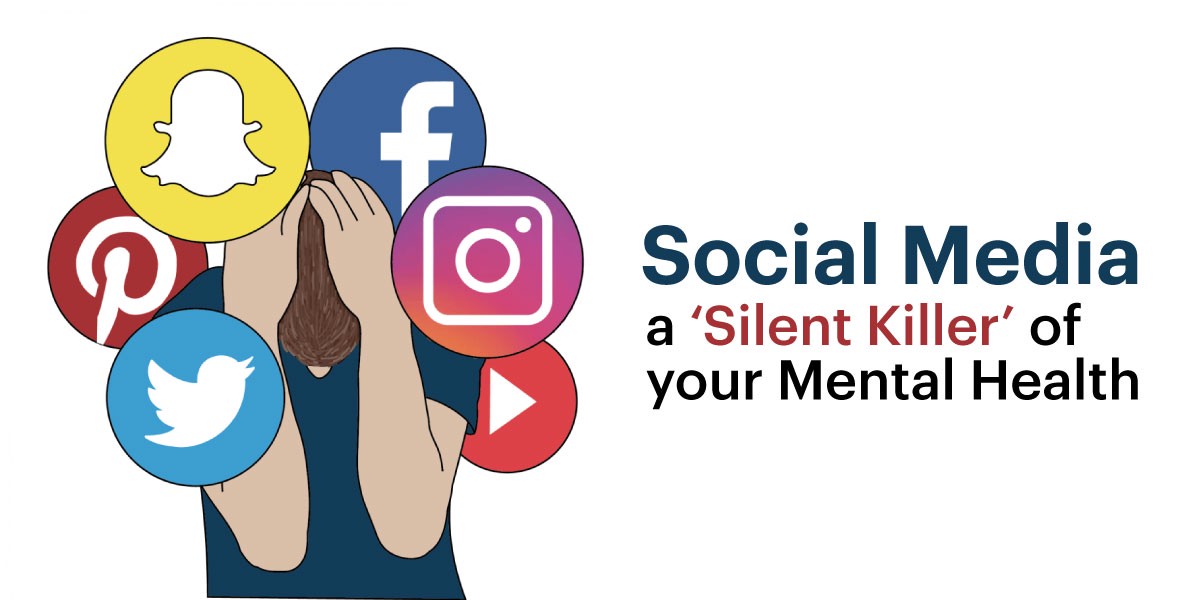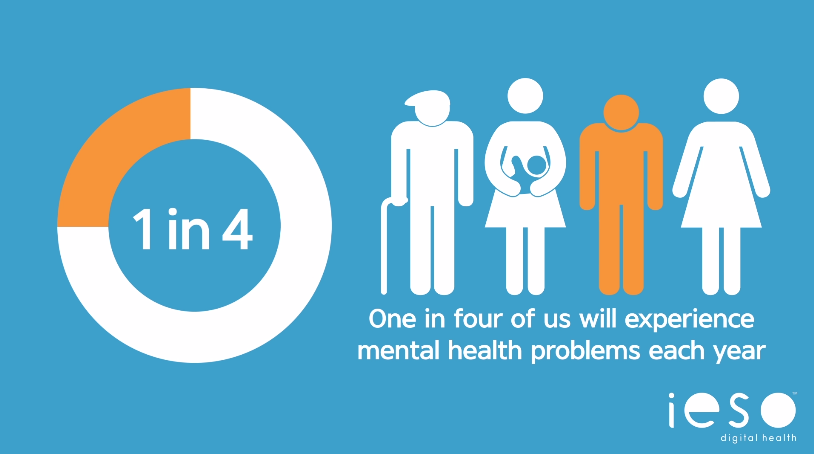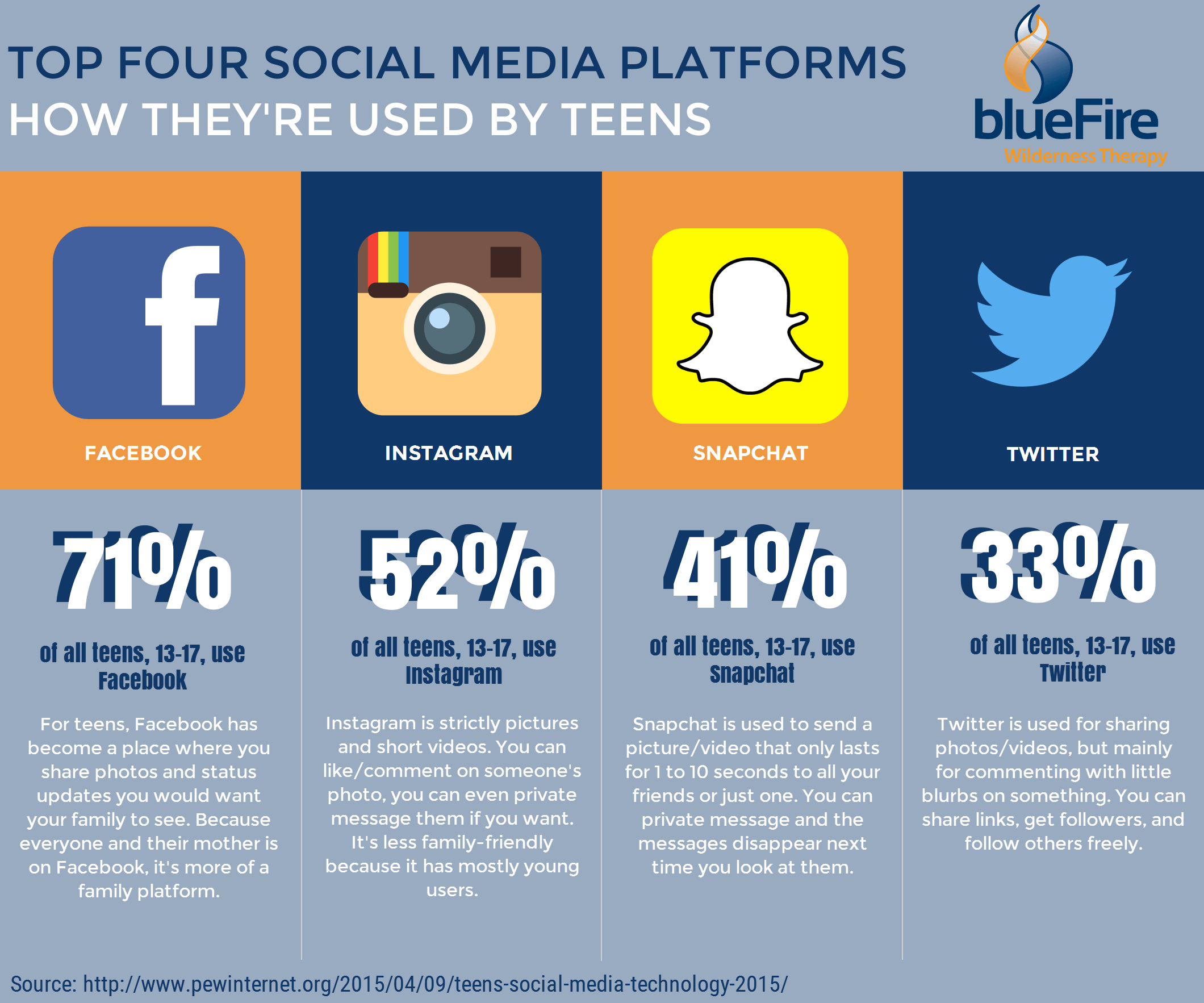The Effect of Social Media on Mental Health

The Effect of Social Media on Mental Health
Within the past 20 years, the use of social media globally has been increasing at an astronomical level with no signs of slowing down. While teenagers and younger generations are generally categorized as being more technologically savvy , the use of social media is growing throughout all ages. Social media has allowed for advanced education and flourishing personal connections; however, it has also simultaneously caused some negative effects in the aspect of mental and social health. While social media can be extremely beneficial, the lesser known negative side effects need to be addressed more frequently.

Whenever there is a significant advance in modern culture, naturally, questions of whether the effects are positive or negative arise. With the use of social media, populations worldwide have had the opportunity to become connected. These connections have therefore made these populations capable of sharing knowledge that perhaps would not have been able to be shared otherwise. From a business/ professional perspective, social media has been groundbreaking. Businesses can better understand their consumers' needs and these businesses can be advertised almost instantaneously through social media. Economically, this can be extremely beneficial as well because while social media is spreading the word of these businesses through advertising, consumers are therefore inevitably likely to spend more money online. From a medical standpoint, social media can provide health care professionals with the ability to "share information and to promote health behaviors, to engage with the public, and to educate and interact with patients, students, and colleagues". Without a doubt these interactions are beyond beneficial for modern culture.

While there are clearly many benefits to social media, there are negative aspects that dually correspond. For example, while positive feedback and advertisements for businesses can spread like wildfire, as can potentially devastating negative reviews and comments. While beneficial medical information can be spread internationally, as can incorrect and therefore potentially dangerous health information (for example: the current debate and misinformation on vaccinations). This risk of falsified information being spread through social media also applies to consumers and their personal lives. Cyberbullying (bullying taking place through any form of social media) is a large and potentially deadly risk essentially caused by social media. As with any bullying, children and adolescents are more susceptible than adults to this type of behavior, and social media only makes it easier to do. According to a study about mental health conducted by Pew Research Center in 2018, 59% of teenagers in the United States alone have experienced some form of bullying/harassment online. As with any form of bullying, cyberbullying statistically presents greater risk of anxiety, depression, low self-esteem, and elevated risk of suicidal thoughts. Social media proves to be a sort of mask, allowing for teens to hide behind technology and feeling a falsified sense of security with no consequences when cyberbullying.
The link between social media and mental health issues is without a doubt highly evident; however, the exact cause is still up for debate because it's likely that a multitude of causes is to blame. Social media causes people to communicate online more frequently than in person. Many psychologists view the increased rate of depression to be evidence that connections made online are less emotionally and socially satisfying, ultimately leading individuals to feel lonelier. This effect of social media also seems to have long term effects in the terms of individuals physically not being able to form successful in-person relationships later in life, simply because they are not accustomed to it.

The use of social media has also been linked to low self-esteem and, therefore, often leading to anxiety and depression as well. Specifically (but not excluding to) teenage girls tend to compare themselves to celebrities and other girls, and this happens even more frequently through social media. Girls are constantly being exposed to, often, photo shopped images of celebrities and internet personalities and after a while this unrealistic standard of 'beauty' can be detrimental to teenage girls' self-esteems (Miller 2018). The fabrication of a perfect image not only makes others feel inadequate but is also harmful to the fabricator themselves. Putting on this façade and trying to portray the perfect life on social media is all-consuming and essentially prevents the individual from admitting if they are feeling any form of mental health issues for fear of being seen as inferior by peers. It's essentially a vicious cycle that seems to stem from social media.
While social media is and will continue to be extremely beneficial in the advancement of education, businesses, and the healthcare industry , the negative aspects that social media causes cannot be ignored. Depression and other mental health issues are increasing nationally, especially among teenagers and younger generations. This observation makes it evident that the increase in these mental health issues and the increase of social media use is strongly correlated. While the use of social media should not be discontinued entirely, it should be more closely monitored and stressed to be used in moderation especially in teenagers because they are more vulnerable to the negative consequences that arise. Social media is an extremely valuable tool that has allowed for remarkable modern social advancement. Once we, as an entire population, thoroughly understand how to use social media properly and with minimal negative consequences, social media will then only become even more valuable.



